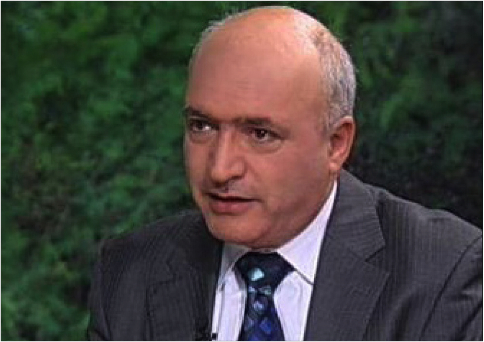Iraq: Middle Road and Mediator

by Nasser Kandil
The launching of a land transport line between Baghdad, Amman, and Cairo was announced as a follow-up to a trilateral Jordanian, Egyptian, Iraqi summit which was held two months prior to the announcement. It embodies an economic and security triangle which encompasses the three countries, as part of the American basket to reinforce the Gulf-Israeli normalization. Such reinforcement consists of making Jordan the compulsory pathway for the outcome of this normalization in the form of oil pipelines and trade convoys. It also consists of compensating Egypt for the loss in Suez Canal revenues by having it sell Iraq electricity and gas through Jordan. More importantly, such reinforcement seeks to isolate Iraq from the system of interests with Iran as a source of electricity and gas, and isolating Iraq from Syria by building a triangle carrying the name of “The New Shaam” which excludes the authentic “Shaam” (Syria), and includes two of her Arab neighbors who are intertwined with her demographically, economically, socially, and security wise, in a way which makes disentanglement impossible.
At the identical timing, an announcement was made in Baghdad of a visit by the Iraqi Prime Minister Mustafa Al-Kadhhimi to Turkey with a full economic and security agenda aiming at ending the security problems arising from Turkish incursions into the North of Iraq, and strengthening the nearly sixteen billion dollar trade exchange between the two countries, especially in the area of Iraqi oil export through Turkish ports, and utilization of Turkish banks for Iraqi trade. This is occurring at a time when the Egyptian Turkish relations are at the peak of tension, and when Turkey is entering a new phase of American sanctions resulting from her acquisition of the Russian S-400 missile system which Iraq had also declared her determination to procure.
It is no secret that Turkey is the third member in a trio with Russia and Iran in the Astana System which is sponsoring the political and security tracks in Syria. It is also no secret that the Turkish President is not in his best days and in great need of securing economic ties with Iraq as an entryway to the establishment of an economic and security zone encompassing Turkey, Iraq, and Syria under Russian-Iranian sponsorship in response to the American and European escalation in the face of Turkey because of her increasing regional influence. In addition, Turkey is fully aware that preserving such influence, even at a low level, will be impossible without understandings in which Russia and Iran are a part of, and which call for Turkish humility and re-positioning in Syria, and according to Iraqi expectations, having as background indications which start with the Iraqi Prime Minister’s visit.
The Iraqi authorities have been preoccupied about preparations following American withdrawal and filling in the gaps under a ceiling of stability, which starts with a dual avoidance, namely the provocation of the Iraqi Resistance, and joining the alliance protecting normalization sponsored by the American Foreign Secretary Mike Pompeo, who is soon to become an ex-Foreign Secretary, but will continue his sponsorship after vacating his post as a business man. This is what explains the multi-directional movements Al-Kadhimi’s Government has been taking, namely towards Turkey, Saudi Arabia and Egypt, and in the opposite direction, towards Syria and Lebanon under security and petroleum headings. At the same time, Iraq is fully aware that any risk of frivolity with her relationship with Iran in the era of the return to the Nuclear Agreement will be an unprecedented folly, and will hold on to it. Iraq was able to hold on to its
relationship with Iran under harsher conditions, and she will continue to do so because of the awareness that such a relationship is the insurance policy for any rule in Iraq.
Although many see the course of normalization as the headline for the coming stage, the certain return of the Americans to the Nuclear Agreement will be the dominant headline. Normalization, and through it the Deal of the Century and American unilateral procedures in support of the Occupation, will become the price the Biden Administration will say it is paying in compensation for the Gulf Israeli duo’s losses from the American return to the Agreement.
Iraq is aware that it will become the first line of engagement in a clash between two regional systems, one in the north comprising Iran, Syria, Turkey, and Russia, despite the differences between its parties embodied in the aggressive Turkish protrusion in Syria which cannot continue in the coming phase, and one in the south comprising the Gulf and Israeli Occupation and aspiring to add to its side Egypt and Jordan. For that reason Iraq is seeking to transform its position and relationships as a prelude to playing the roles of the middle ground and the mediator, which neither regional system opposes. This will mean, however, that the highly tense crisis line will move to Jordan.




